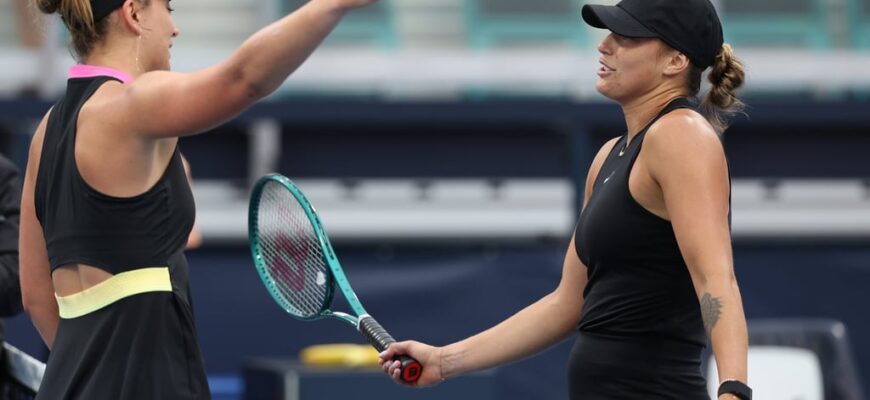The National Bank Open in Montreal is set to witness a confluence of significant narratives this season. While the vibrant city prepares to host elite tennis, two prominent figures, Eugenie Bouchard and Aryna Sabalenka, will mark their absence from the courts under vastly different circumstances—one a definitive conclusion to a storied career, the other a strategic pause by a world-beater.
Eugenie Bouchard`s Final Bow: A Career Forged in Fire, Concluded at Home
Eugenie Bouchard, a name synonymous with Canadian tennis excellence for over a decade, has announced her retirement from professional tennis. The 31-year-old, who captured the hearts of fans worldwide with her captivating run to the Wimbledon final in 2014, will play her final professional match at her home tournament in Montreal. It is a fitting, albeit poignant, curtain call for a career that began with such dazzling promise.
Bouchard’s breakout year in 2014 saw her not only reach the Wimbledon final, where she fell to Petra Kvitova, but also make semi-final appearances at both the Australian Open and the French Open. This exceptional performance propelled her to a career-high ranking of world No. 5, solidifying her status as a genuine contender and a trailblazer for Canadian tennis. As Valerie Tetreault, the National Bank Open tournament director, aptly put it, she was “one of the most important figures in the history of our sport in Canada and a trailblazer who redefined what Canadian tennis could be.”
However, the narrative of Bouchard’s career took an unfortunate turn in 2015. A slip on a wet locker room floor at the US Open resulted in a concussion, an injury that would cast a long shadow over her subsequent years on tour. Despite a successful lawsuit against the USTA, her trajectory never quite regained its former heights. The physical and mental toll of such an injury proved immense, a stark reminder of the fragile balance between athletic prowess and external adversities.
In recent years, Bouchard contributed to Canada’s maiden Billie Jean King Cup title in 2023 and even ventured into the burgeoning world of professional pickleball, playing just one tour match this season. Her career singles record stands at 299 wins and 230 losses, a testament to her enduring commitment despite the challenges. Her retirement message, shared on social media, succinctly captured the moment: “You’ll know when it’s time. For me, it’s now. Ending where it all started: Montreal.”
Aryna Sabalenka`s Strategic Pause: The Price of Being World No. 1
In stark contrast to Bouchard’s definitive farewell, world No. 1 Aryna Sabalenka has announced her withdrawal from the Montreal event due to fatigue. The Belarusian powerhouse, currently at the pinnacle of her sport, is opting for a strategic rest period to ensure peak performance for the demanding North American hard-court swing, culminating in the US Open.
Sabalenka’s decision underscores the relentless demands placed upon elite athletes in modern tennis. Having reached the semi-finals at Wimbledon and Berlin, and the final of the French Open this season, her schedule has been nothing short of grueling. While fans might lament her absence, her rationale is a pragmatic one: “To give myself the best chance for success this season, I’ve decided it’s in my best interest to skip Montreal.” This is not an admission of defeat, but a calculated investment in sustained excellence.
The irony is subtle yet significant: one player concludes her journey in the very city that nurtured her ascent, largely due to lingering effects of an injury; another, at the zenith of her powers, chooses to step away temporarily from the same event, not from physical inability to compete, but from the imperative to prevent burnout. It highlights the vastly different challenges players face at different stages of their careers, from the unexpected derailments to the strategic sacrifices required to remain at the top.
The Enduring Narrative of Professional Tennis
The simultaneous news from Montreal encapsulates the multifaceted nature of professional tennis. It is a sport of fleeting glory and enduring grind, where careers can be shaped by a single point, a pivotal injury, or a strategic decision to prioritize long-term health over immediate competition. Bouchard’s retirement serves as a poignant reminder of past brilliance and the unforgiving reality of athletic longevity, while Sabalenka’s withdrawal underscores the intense physical and mental demands that define the modern game at its highest level.
As the National Bank Open proceeds without these two notable figures, the broader narrative of tennis continues: a dynamic interplay of talent, resilience, and the relentless pursuit of perfection, occasionally punctuated by moments of strategic rest or, inevitably, a final, graceful bow.








